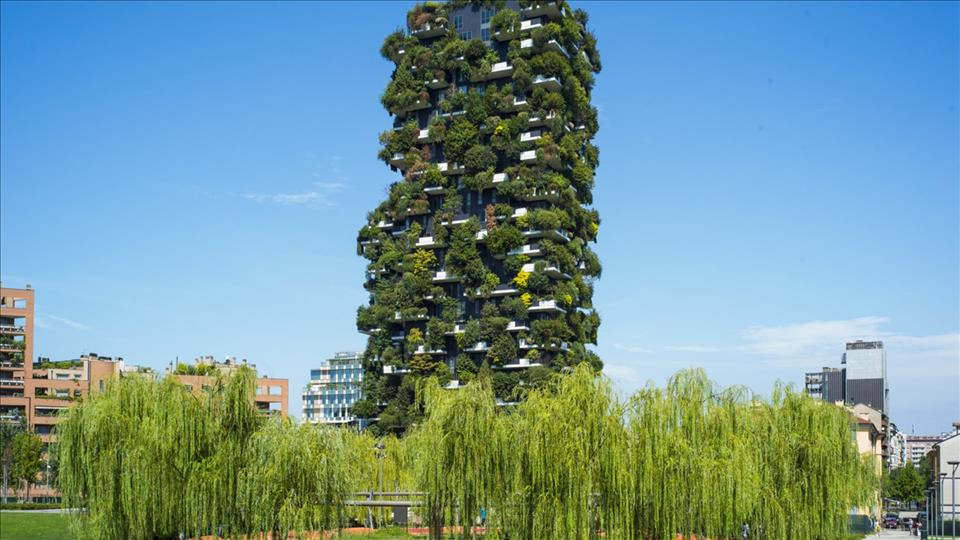
Switzerland - 'Nature must be our ally in climate adaptation'
More than 330 people from some 70 countries reviewed more than 34,000 scientific articles. These are the numbers of the new report on the state of the planet published on Monday by the UN Intergovernmental Panel on Climate Change (IPCC). The report outlines the repercussions of rising emissions and temperatures on ecosystems and human societies, particularly in cities, and emphasises adaptation measures.
“There is clear and growing evidence that the impacts of climate change on humans and nature are very serious and affect us all,” says Thomas Bernauer, professor of political science at the federal technology institute ETH Zurich.
“For example, water scarcity is increasing in many regions of the world. There are more landslides, more floods, more droughts, more extreme weather events, more biodiversity losses. These are not random events, but the clear consequences of global warming.”
IPCC climate reportsThe Intergovernmental Panel on Climate Change (IPCC) is based in Geneva and brings together 195 member states. It is organised into three working groups which focus on different aspects of climate change. Working Group I (WGI) deals with the scientific basis; WGII assesses impacts on natural systems and adaptation options; WGIII focuses on mitigation (reduction of greenhouse gases).
The report published on Monday is the result of the work of WGII and represents the second part of the IPCC's Sixth Assessment Report. The first part was published in August 2021, while the third will follow in April.
These reports are important because they are used to help develop national and international climate policies.
End of insertionRupa Mukerji, a climate expert at the Swiss development aid organisation Helvetas, says the changes in extreme events hypothesised in previous reports are already happening now.
“Everything that was anticipated seems to be happening a decade earlier, and this is frightening,” she says.
Greta was right: our house is burning downThis content was published on Aug 13, 2021 Aug 13, 2021 This summer's extreme weather events confirm what scientists have been saying for years: there is no more time to waste in saving the Earth from...
Mangroves against rising seasMukerji emphasises the need to think about long-term adaptation solutions. Building a dam or protective wall in a flood-prone region is certainly helpful, but it could also provide a false sense of security. Large structures can also disrupt connections between ecosystems.
She cites the case of Bangladesh, among the countries most vulnerable to climate change, and its nature-based approach.
“Restoring and preserving mangroves is an effective way to cope with rising sea levels,” she says, pointing out that thanks to a widespread warning system capable of reaching households directly, mortality during extreme events has also been greatly reduced.
Bernauer also believes it's critical to rethink nature, especially in urban areas, where the heat island effect is driving the temperature even higher. It's better to bring nature back to up urban spaces than to put in air conditioners, he says.“Many examples in the report prove it: nature must be our ally in adapting to climate change, thus reducing our vulnerability to climate change risks.”
MoreMore
How Swiss cities are beating the heatThis content was published on Aug 15, 2020 Aug 15, 2020 Why is it so much hotter in urban areas than in the countryside, and what are Swiss cities doing to tackle these“heat islands”?
Gap in poor countries and also in SwitzerlandAdaptation requires investment. However, it is not just a matter of money, according to Bernauer. The new IPCC report shows that the capacity of adaptation in the world is strongly influenced by the level of development of the region or country in question. However, not only the gross domestic product matters, but also the political and social institutions.
“In a state that is rich, but corrupt and with bad governance, the capacity of adaptation is very limited,” he says.
Bernauer is concerned that adaptation efforts around the world are not keeping pace with increasing climate risk, what's known as an adaptation gap. A big adaptation gap is unsurprisingly observed in poorer countries and countries that are poorly governed, but this gap also appears in rich democracies such as Switzerland.
“In the Alps, for example, the average temperature is increasing faster than the global average. We can't just stabilise mountain slopes or use concrete, steel and rocks to protect against increasingly extreme weather events and floods. It also takes massive efforts in urban planning, adapting agricultural practices, and making energy and transportation infrastructure less vulnerable to climatic risks. All this will take decades,” he says.
Action must be taken now, Mukerji stresses, in part because the more the temperature rises, the fewer the options for adaptation.
MoreMore
Join the discussion
Climate change
Simon Bradley What's the most promising future energy source?We'd be interested to hear your thoughts on the potential benefits and drawbacks of renewable energies.
MoreMore
Why the world should take note of the Swiss apprenticeship modelSome consider the system the“gold standard” in vocational training.

Legal Disclaimer:
MENAFN provides the
information “as is” without warranty of any kind. We do not accept
any responsibility or liability for the accuracy, content, images,
videos, licenses, completeness, legality, or reliability of the information
contained in this article. If you have any complaints or copyright
issues related to this article, kindly contact the provider above.


















Comments
No comment